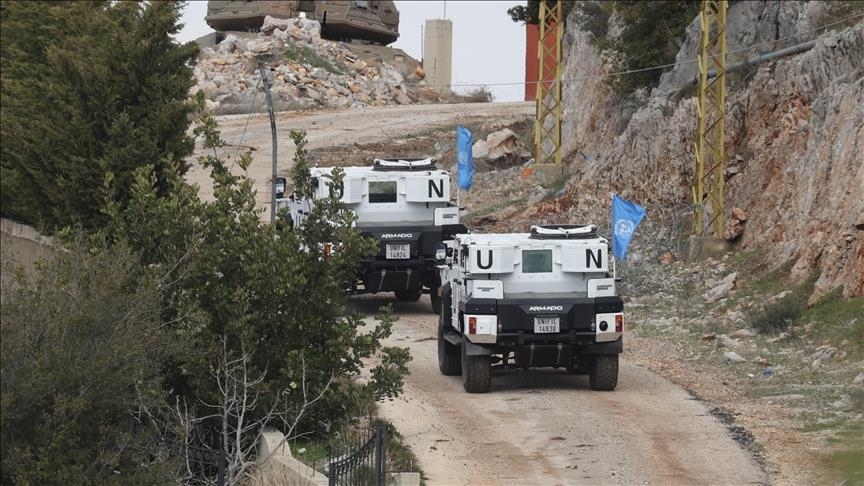INTERVIEW – UNIFIL reaffirms ‘strategic partnership’ with Lebanon, backs army plan for state monopoly on arms
‘UNIFIL’s primary role is to assist the Lebanese army, and this is exactly what we will continue to do,’ spokesman Dany Ghafari tells Anadolu

BEIRUT / ISTANBUL
The UN Interim Force in Lebanon (UNIFIL) reaffirmed its strategic partnership with Beirut on Thursday to implement UN Resolution 1701 and bring all weapons under state control.
In an interview with Anadolu, UNIFIL spokesperson Dany Ghafari underlined the mission’s support for a Lebanese army plan for state monopoly on weapons.
The Lebanese army is “our strategic partner in implementing UN Resolution 1701 in our area of operations south of the Litani River,” he said.
Resolution 1701, passed in 2006, calls for a complete halt to hostilities between the Lebanese group Hezbollah and Israel and the establishment of a weapons-free zone between the Blue Line, a de facto border, and the
Litani River in southern Lebanon, with exceptions for the Lebanese army and the UNIFIL.
“UNIFIL’s primary role is to assist the Lebanese army, and this is exactly what we will continue to do,” he said.
Ghafari noted that UNIFIL, in coordination with the Lebanese army, has discovered more than 300 weapons caches in southern Lebanon since October 2024, and that these weapons were handed over to the military.
“All of UNIFIL’s capabilities are at the Lebanese army’s disposal through ongoing coordination, since the army has been performing tremendous work,” under a ceasefire reached with Israel in November 2024, the spokesman said.
He underlined the necessity of the Israeli withdrawal from the southern borders to help complete the deployment of the Lebanese army forces in the area.
A ceasefire was reached in November 2024, following a military offensive launched by Israel on Lebanon on Oct. 8, 2023, which escalated into a full-scale war by September 2024, killing more than 4,000 people and injuring around 17,000.
Under the truce, Israel was supposed to fully withdraw from southern Lebanon by Jan. 26, but the deadline was extended to Feb. 18 after Tel Aviv refused to comply. Israel still maintains a military presence at five border outposts and continues to conduct near-daily attacks in southern Lebanon, claiming to target activities of the Hezbollah group.
Israeli attack on peacekeepers
On Sept. 3, Israeli drones targeted UNIFIL’s peacekeeping personnel while they were working to clear roadblocks near the Blue Line de facto border.
“The attack on peacekeepers was unacceptable and constituted a violation of international law and UN Resolution 1701,” the spokesman said.
He warned that such attacks “directly affect the freedom of movement of the peacekeeping mission, which is essential for carrying out the tasks assigned to it.”
“All parties are called upon to end these actions immediately, which the international community strongly condemns and insists they must not recur,” he said.
Although UNIFIL’s mission is not humanitarian, Ghafari stressed that the peacekeepers “play an important role on the humanitarian level, in addition to their peacekeeping tasks.”
“We carry out major development projects in southern Lebanon. There are quick-impact projects and others provided by the countries contributing troops to UNIFIL through their battalions deployed in the south. This is in addition to material aid, free medical services, and support in various fields.”
“The region today needs development projects more than ever to ensure the safe return of residents to their homes in areas damaged by the war,” the spokesman said.
Last month, the UN Security Council unanimously extended the mandate of the UN peacekeeping mission for the last time until the end of 2026, after nearly 50 years of its presence in southern Lebanon.








